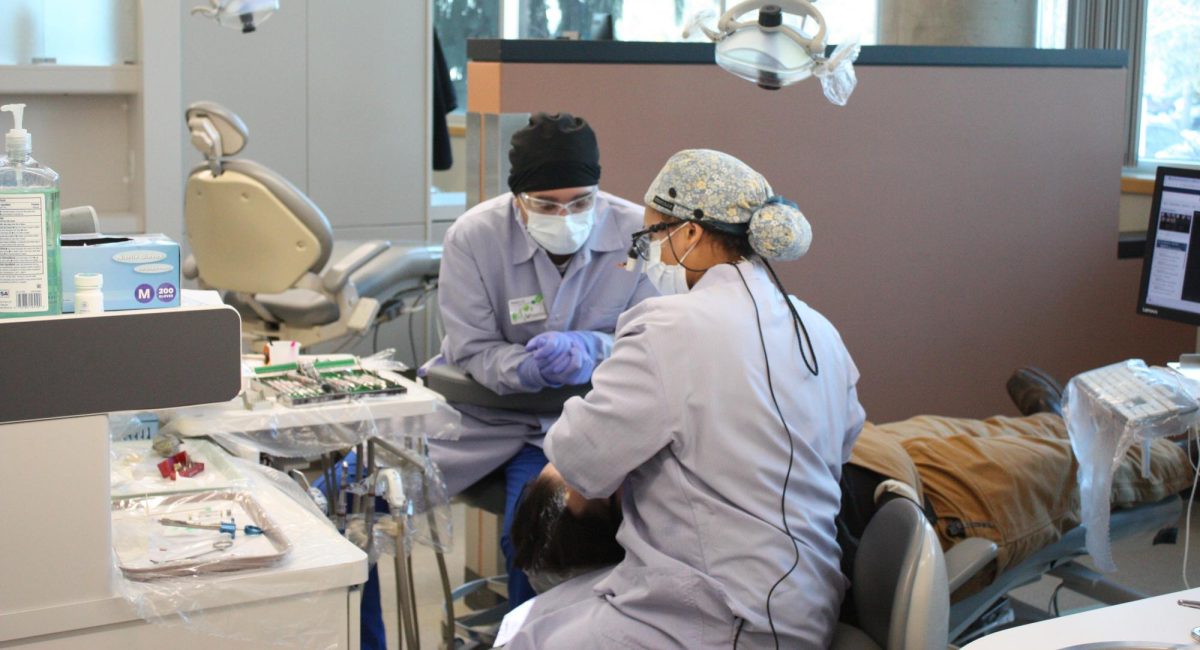International students navigate though sea of paperwork to find legitimate jobs
Office of Global Initiatives helps international students legally find work
February 21, 2013
Finding work as a college student in the current economy can be difficult, and the process can be even more exhausting as an international student.
Three percent of EWU’s student population are international students coming from places like Saudi Arabia, China, Taiwan and other locations across the globe.
The Office of Global Initiatives works with international students to help them find internships and jobs, both on-campus and outside the EWU community. Any sort of employment for international students requires authorization.
“Unauthorized employment is the unforgivable immigration sin,” said Kara LaSota, international student adviser. “You can’t come back from it. You have to leave the country and return [home]. You cannot apply for reinstatement if you are employed without authorization.”
Some options for international students include on-campus employment, curricular practical training and optional practical training.
“For on-campus employment, you can be employed on campus with what’s called ‘incident to status.’ It means that it is a benefit of being an F-1 status,” LaSota said.
An F-1 student is classified as someone who is attending a Student and Exchange Visitor Program approved academic institution who has nonimmigrant status.
“You are allowed to get on-campus employment for a certain amount of time every week if you can find a job. And that’s a whole separate question,” LaSota said.
International students who find employment on campus can work up to 19 hours a week during the term. They must work for the university or for an on-campus vendor who provides services directly to students.
“It does not need to be related to your field of study. Most other employment does need to be related to your field of study, but on-campus employment can be pretty much any office on campus,” LaSota said.
Curricular practical training is an option for work outside the university.
“It is supposed to be an integral part of an established curriculum, which means pretty much it needs to be in the catalog,” LaSota said.
It is defined as alternative work study, internship, cooperative education or any other type of required internship or practicum offered by sponsoring employers and through cooperative agreements with the school.
“It must be in your declared major,” LaSota said. “It’s any kind of training, paid or unpaid. [For] any kind of training off-campus and outside the classroom you should be getting [curricular practical training] authorization.”
Curricular practical training is available to students who have been full-time students for one year. For graduate students, one full year may not be necessary if the program requires earlier participation. Students can work up to 20 hours per week during the term and full time during official school breaks.
“Think of it as permission to do training in your field outside the classroom,” LaSota said.
Optional practical training is another option for international students. It is defined as temporary employment for practical training directly related to the student’s major area of study.
The authorization process for this type of employment is more intricate, according to LaSota.
“It is approved by U.S. Citizenship and Immigration Services, which means it takes a very long time to approve, and it costs you a lot of money,” she said.
It costs $380 for each application, and it usually takes about three months to get approval.
Students need to plan in advance for this type of training. Applications must be received by U.S. Citizenship and Immigration Services between 90 days before the end of students’ studies and no later than 60 days upon completion of studies.
The Office of Global Initiatives has held workshops to help students understand the importance of employment authorization.
HanFu Shi is an international student from China who attended one workshop to prepare for future employment opportunities.
“The reason I came to this meeting is because I’m going to graduate in June. I’m a senior now, I may go to graduate school in the future, but I may try to find a job here next year,” he said. “For foreign students, we have to know the immigration rules. That will give us less trouble.”
Shi encountered a slight mishap last quarter when he attempted to apply for curricular practical training by himself.
“You have to know a lot and be so prepared before you turn everything in. I got kind of in trouble my first time. I didn’t have enough documents. Now [the Office of Global Initiatives] is offering this meeting, and I think that may help me if I do [optional practical training] in the future.”
LaSota said it is important for international students to take employment laws seriously.
“If you ever have questions about what is OK and what is not OK, please ask me in advance. Don’t wait until you’re actually doing it, because if you’re doing it, there’s nothing I can do about it except send you home and hope that you can come back.”








